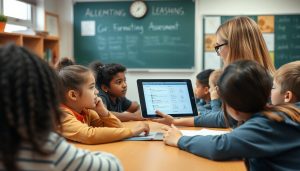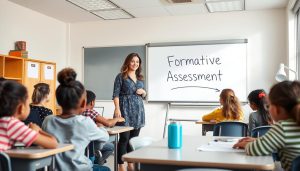While learning habits and styles start to form at a very young age and can be influenced by engaging teachers (or stifled by less-than-enthusiastic ones), we can also make a conscientious effort to retrain ourselves in ways to become more effective learners long after our formal education ends.
Learning is, after all, a lifelong process and takes place every day, be it in casual ways, such as sitting with a favorite aunt and watching her knit, or in more organized ways, such as enrolling in a cooking class with friends.
The best teachers are lifelong students themselves, the ones who always remain curious and open to trying new activities and honing new skills. As trends in education change, it can be especially important for teachers to see themselves as students. A willingness to embrace a new concept is critical when you are tasked with teaching it to others.
Here we will explore some habits you can adopt to become a more effective learner, and by demonstrating these habits to students you influence them to become more effective learners as well.
Start Single Tasking and Staying Focused
In a culture that often glorifies multitasking (to our detriment), effective learners are individuals who place emphasis on a single task in an effort to truly learn and absorb knowledge. This means eliminating all distractions when you are focused on learning.
Put your phone in “do not disturb mode” and turn off the radio, television, or other distractions around you. If you are using a laptop or other device to learn—for example, taking an online learning course—silence notifications from e-mail and other apps.
Resist the urge to pause your course to open Facebook to see how many “likes” your post has fetched or to respond to the group text with friends planning a birthday dinner. Most of us are used to multitasking daily, but time devoted solely to a single task will yield more effective learning.
Put Practical Pauses in Place
While focusing on a task is critical to effective learning, it is also important to know when to pause and take a break. A brief pause in learning allows your brain to rest and reset, ensuring you do not become distracted and fatigued.

Long and uninterrupted study sessions may lead to burnout during the learning process. If you have become tired, restless, and distracted, it is highly unlikely you are retaining the new material. Plus, it will do your body good to get up and move around periodically. Consider using a timer and work for 25 minutes, followed by a five-minute break.
The best teachers use periods of quiet and concentration in the classroom, followed by periods of movement, group work, and physical activity to keep students energetic and engaged, and the same practices apply to effective lifelong learning.
Clear a Space for Learning
While single-tasking and taking strategic breaks help set the tone for the right headspace, think about your physical learning space, too. Set up a learning environment in your home where you can focus on a new skill without distractions.
Your learning environment should be well-lit, comfortable, and free of clutter. Make sure you have a good chair and workstation that allows you to sit upright and stay on task, versus the comfy bean bag that might make you want to take a nap instead!
Read All About It
Perhaps nothing shapes our minds as effective learners more so than reading. Voracious readers enhance their vocabulary, discipline, curiosity about the world around them, and so many other traits whenever they pick up a book, magazine, or newspaper.
If reading does not rank highly among your hobbies, challenge yourself to add it to your daily routine. Find books about subject matter that excite you or simply make it a goal to read one or two news articles daily. Consider joining a book club or setting a goal to read one book per month.
Feed Your Mind and Body
Never underestimate what nutrition and exercise do for us when it comes to learning effectively. A well-balanced diet, plenty of exercise and rest, and proper hydration are all major influencers when it comes to how our bodies work with us (or against us) as we try to learn new things.
Any college student who ever bombed a final exam after a late-night party knows all too well what happens when we short-change our bodies of what they need. Your mind will be in a much better state to learn effectively if you eat a diet rich in protein, vitamins and minerals, drink eight or more glasses of water per day, get plenty of sleep each night, and exercise regularly.
A brisk, 10 to 15-minute walk before you sit down to tackle learning a new skill will raise your energy level and help you approach the task enthusiastically (thanks to endorphins!).
Challenge Your Mind
While you might think your mind deserves a break after surviving parent teacher conferences, or conquering a large stack of grading, or even after grueling tutoring sessions with your teenage daughter in math, your mind is a muscle that needs lifelong “training” to stay in tip-top shape.
Do not become complacent with what you already know or satisfied with your existing skill set. Find new ways to challenge your mind, whether that means a daily crossword, learning a new language, or even enrolling in a course at your local community college.
Even simple changes to your daily routine work to keep your mind fresh. Change up the route when you take your dog for a long walk on weekend afternoons; even simple changes like these force your mind to concentrate harder than normal rather than simply operating on auto-pilot.
Try incorporating some or all of these habits into your daily routine, and you will most certainly learn more effectively, strengthening your mind and creating constant opportunities for growth.




